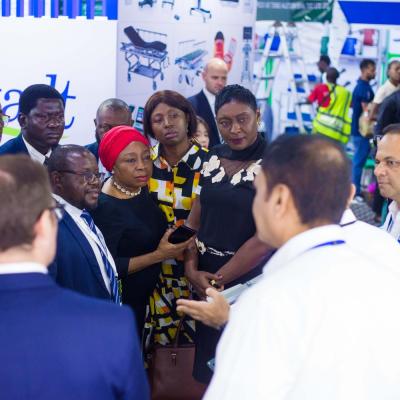Frontpage News (3259)
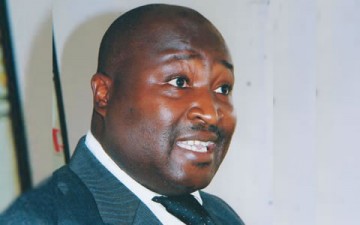 The President, Pharmaceutical Society of Nigeria, Mr. Olumide Akintayo, has called on President Muhammadu Buhari to reconstitute the board of Pharmacists Council of Nigeria. Akintayo, in a statement during the 2015 World Pharmacists Day entitled “Pharmacists: Your Partner in Health”, noted that the absence of the board would enable drug counterfeiters to operate freely in the country. According to him, the dissolution of the board will frustrate the regulatory function of the council and make way for the influx of fake medicines into the country.
The President, Pharmaceutical Society of Nigeria, Mr. Olumide Akintayo, has called on President Muhammadu Buhari to reconstitute the board of Pharmacists Council of Nigeria. Akintayo, in a statement during the 2015 World Pharmacists Day entitled “Pharmacists: Your Partner in Health”, noted that the absence of the board would enable drug counterfeiters to operate freely in the country. According to him, the dissolution of the board will frustrate the regulatory function of the council and make way for the influx of fake medicines into the country.
He said, “We implore the Federal Government to halt the drift in the operational efficiency of the Pharmacists Council of Nigeria by reconstituting it now and subsequently invoking the spirit of the law that provides for perpetual succession in the enabling act. “The absence of PCN Governing Council in a strategic profession like ours boosts the fake drug syndrome tragically.
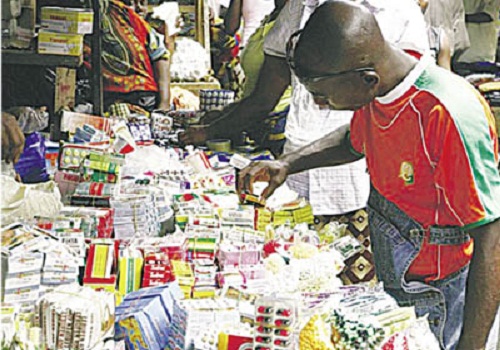 The Association of Industrial Pharmacists of Nigeria has decried the activities of counterfeiters of regulated drug products, saying the organised criminals have been reaping where they had not sown. Speaking at the NAIP’s 18th annual conference whose theme was, ‘Transforming the Nigerian Pharmaceutical Industry: The big picture.’ The industry chiefs said, so far, estimated profits earned from trading in counterfeit drugs was $1.77tn.
The Association of Industrial Pharmacists of Nigeria has decried the activities of counterfeiters of regulated drug products, saying the organised criminals have been reaping where they had not sown. Speaking at the NAIP’s 18th annual conference whose theme was, ‘Transforming the Nigerian Pharmaceutical Industry: The big picture.’ The industry chiefs said, so far, estimated profits earned from trading in counterfeit drugs was $1.77tn.
In his presentation, the Associate Vice-President, Anti-Counterfeit Co-ordination Sanofi/France, Mr. Geoffroy Bessaud, said drug counterfeiting occured at several levels, ranging from artisanal level to international organised crime networks, with the attendant loss of profit for patent owners. Bessaud noted that apart from the financial loss that licensed drug manufacturers suffer,
 Two officials of the National Drug Law Enforcement Agency, NDLEA, have been declared wanted after absconding with narcotics last month. Daniel Goska, a Superintendent of Narcotics, and Ndubuisi Ughor, a Chief Narcotic Agent, disappeared from their duty posts after a drug suspect, Dayson-Eddie Ifeanyichukwu, was nabbed with 74.4 kilogrammes of banned drugs at the Akanu Ibiam International Airport, Enugu. Mr. Ifeanyichukwu and three other suspects had been arrested by the anti-narcotics agency for unlawful exportation of the banned drugs. The officers were last seen on duty at the Enugu Airport on August 7, the NDLEA said in a statement on Monday. According to the NDLEA rules, absence from duty for 21 days is punishable by dismissal.
Two officials of the National Drug Law Enforcement Agency, NDLEA, have been declared wanted after absconding with narcotics last month. Daniel Goska, a Superintendent of Narcotics, and Ndubuisi Ughor, a Chief Narcotic Agent, disappeared from their duty posts after a drug suspect, Dayson-Eddie Ifeanyichukwu, was nabbed with 74.4 kilogrammes of banned drugs at the Akanu Ibiam International Airport, Enugu. Mr. Ifeanyichukwu and three other suspects had been arrested by the anti-narcotics agency for unlawful exportation of the banned drugs. The officers were last seen on duty at the Enugu Airport on August 7, the NDLEA said in a statement on Monday. According to the NDLEA rules, absence from duty for 21 days is punishable by dismissal.
Ahmadu Giade, NDLEA’s chairman, said any staff indicted under the law would be treated equally. “The agency has taken necessary steps by stopping the salaries of the officers and declaring them wanted. “Winning the war against illicit drugs demands that while dislodging drug cartels; we must ensure that members of staff comply with best practice at all times. “Efforts are ongoing to charge the officers in line with the rules of engagement. The agency is moving forward and will continue to purge itself of undesirable persons who are deficient in discipline and integrity,” Mr. Giade said.
 The Kwara State Government said it has spent 96 percent out of the World Bank support for the implementation of HIV/AIDS in the state. The State Deputy Governor, Elder Peter Kisira stated this in Ilorin during the National Agency for the Control of AIDS (NACA) advocacy visit to the state. While reiterating the state’s commitment to HIV/AIDS programme and other health related programmes in the state, Kisira who is also the chairman of the state AIDS Control Agency (KWASACA) said that this was demonstrated by the reduction in the prevalence of HIV/AIDS from 4.3% in 2001 among the women that attended anti-natal clinics to 1.47% in 2012 among the general population.
The Kwara State Government said it has spent 96 percent out of the World Bank support for the implementation of HIV/AIDS in the state. The State Deputy Governor, Elder Peter Kisira stated this in Ilorin during the National Agency for the Control of AIDS (NACA) advocacy visit to the state. While reiterating the state’s commitment to HIV/AIDS programme and other health related programmes in the state, Kisira who is also the chairman of the state AIDS Control Agency (KWASACA) said that this was demonstrated by the reduction in the prevalence of HIV/AIDS from 4.3% in 2001 among the women that attended anti-natal clinics to 1.47% in 2012 among the general population.
The Deputy Governor explained that four line ministries health, women affairs, youth and sports development, education and human capital development are implementing HIV/AIDS programmes in their sectors including the 16 local government areas of the state. He called on NACA and developed countries to give Kwara State special consideration in view of its border to three countries Burkina Faso, Niger Republic and Benin Republic as citizens of these countries come to the state on a daily basis. Earlier, the Director General of NACA, Professor John Idoko commended Kwara state for its health insurance scheme which he noted has been captured by the agency as micro model being adopted by other states of the federation.
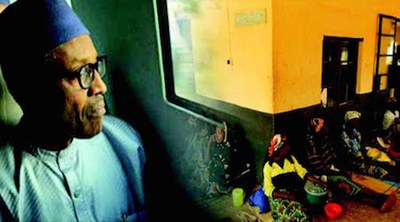 Can Buhari transform the healthcare system for good? When Flora Shaw, a British journalist and novelist, gave the most populous black nation its name, Nigeria, in preparation to becoming an independent state, and having been dominated by Britons until October 1st 1960, one would think by now the name should be ranking among developed nations of the world considering its enormous natural and human resources, which were all waiting to be enhanced after the foreigners had left more than five decades ago. But at 55, various institutions in the country, including the health and educational sector, as well as our economic institutions are still grappling to be at per with institutions of some other countries that got their independence at about the time Nigeria did. Singapore, Malaysia, Cyprus, among others, according to some school of thoughts, have long passed Nigeria in terms of healthcare, economic level, poverty alleviation and other several parameters that determine the strength and progress of a country.
Can Buhari transform the healthcare system for good? When Flora Shaw, a British journalist and novelist, gave the most populous black nation its name, Nigeria, in preparation to becoming an independent state, and having been dominated by Britons until October 1st 1960, one would think by now the name should be ranking among developed nations of the world considering its enormous natural and human resources, which were all waiting to be enhanced after the foreigners had left more than five decades ago. But at 55, various institutions in the country, including the health and educational sector, as well as our economic institutions are still grappling to be at per with institutions of some other countries that got their independence at about the time Nigeria did. Singapore, Malaysia, Cyprus, among others, according to some school of thoughts, have long passed Nigeria in terms of healthcare, economic level, poverty alleviation and other several parameters that determine the strength and progress of a country.
THISDAY investigations as Nigeria turns 55 today, revealed that the chief sector where the citizens feel the country has not faired well considering the resources at its disposal is the health sector. Majority of the populace says they have lost confidence in the Nigeria’s healthcare system, especially its primary healthcare, hence there was no need celebrating Nigeria at 55, rather, stakeholders should look inwards and reflect on what must be done to prevent the abysmally high maternal mortality rate, lack of primary healthcare for the ordinary citizens, especially in hard to reach areas, lack of quality and affordable healthcare, incessant strike actions in the sector, high cost of treatments, among others.
Malaria Drug Counterfeiting Has Dropped From 19.6 To 3.6 Per Cent – NAFDAC
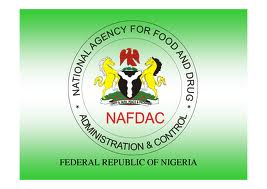 Counterfeiting of anti-malaria drugs has reduced from 19.6 percent to 3.6 percent in Nigeria, Director Special Duties, National Agency of Food Drugs Administration and Control (NAFDAC) Dr. Abubakar Jimoh disclosed. Jimoh made the disclosure during an enlightenment campaign at the Malkohi IDPs camp in Yola Saturday. Jimoh who represented the Director General of NAFDAC Dr. Paul Orhii noted that the feat was achieved following the deployment of cutting edge technology adding that his organisation deemed it fit to take their campaigns to IDP camps in order to bring safety awareness to the inhabitants.
Counterfeiting of anti-malaria drugs has reduced from 19.6 percent to 3.6 percent in Nigeria, Director Special Duties, National Agency of Food Drugs Administration and Control (NAFDAC) Dr. Abubakar Jimoh disclosed. Jimoh made the disclosure during an enlightenment campaign at the Malkohi IDPs camp in Yola Saturday. Jimoh who represented the Director General of NAFDAC Dr. Paul Orhii noted that the feat was achieved following the deployment of cutting edge technology adding that his organisation deemed it fit to take their campaigns to IDP camps in order to bring safety awareness to the inhabitants.
He noted that their concern for the IDPs, made his organization to also donate assorted drugs chief among which are anti malaria and anti biotic drugsThe DG noted that another reason for their intervention was to ensure that food, drugs and other consumables being used in the camps are wholesome and also to ensure that the food is fortified with vitamin A while the salt is iodized. Jimoh added that his organization has forged a working relationship with NEMA to enhance the control and administration of drugs and food in the various camps across the nation noting that in the same breath, NAFDAC is also partnering with the wife of the President as they are pursuing the same cause.
The IFC’s The Business of Health in Africa report opens with this statement: “Sub-Saharan Africa has about 11 per cent of the world’s people, but it carries 24 per cent of the global disease burden in human and financial costs.” This is further compounded by the fact that 50% of the region’s healthcare expenditure is financed by out-of-pocket payments, which have catastrophic consequences for the mass of Nigerians eking out these payments.
The study goes on to postulate that between 2010 and 2020, about $25-$30 billion investments will be needed in healthcare assets such as hospitals, clinics, and distribution warehouses in order to meet up with the growing healthcare demand. This is based on the fact that close to 60% of the health services are provided by the private health sector. This raises a germane question: how will private health sector in Africa, nay Nigeria, raise the needed funds to boost the industry’s capacity to provide health services that meet up with the demand? Enter Equipment Leasing!
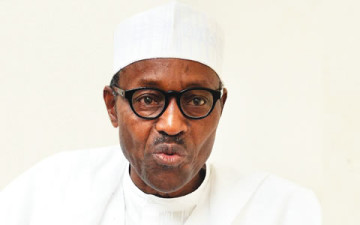 The Convener, Arise Women Medical Outreach, Mrs. Siju Iluyomade, has urged the Federal Government to provide subsidised health insurance for the less privileged. Iluyomade made this call at a briefing in Lagos. According to her, the health sector is in need of an intervention in financing and only the government has the resources to support indigent Nigerians. She said, “The change we expect is that every Nigerian should have access to basic medical care no matter how poor they are.
The Convener, Arise Women Medical Outreach, Mrs. Siju Iluyomade, has urged the Federal Government to provide subsidised health insurance for the less privileged. Iluyomade made this call at a briefing in Lagos. According to her, the health sector is in need of an intervention in financing and only the government has the resources to support indigent Nigerians. She said, “The change we expect is that every Nigerian should have access to basic medical care no matter how poor they are.
Health care delivery should not be for the middle class or the rich but for every one that wants to live well. It is the government that can provide this for the people, individuals can only support.” Iluyomade, who said the organisation had provided free health care services to over 60,000 Lagosians since 2013, explained that it was committed to supporting the rural poor. The Chairperson, Arise Foundation, Abuja, Dr. Mojisola Odeku,
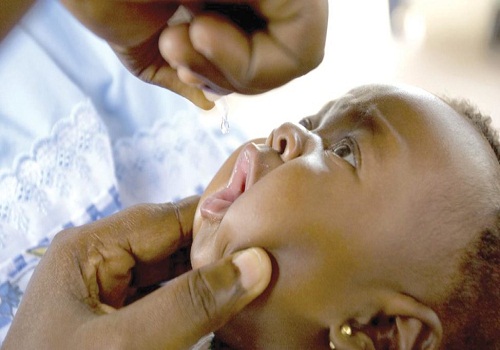 The Chief Oversight Officer, Sustainable Health International, Dr. Mike Omotosho, has said that Nigeria is not yet free from polio. The World Health Organisation on September 25 had delisted Nigeria from the comity of countries with polio. Nigeria, according to Omotosho, needs three consecutive years of non-interrupted transmission of polio cases before it can be free from the disease. Omotosho, who is also the Governor of Rotary International District 9125, stated this at a briefing in Ilorin, Kwara State.
The Chief Oversight Officer, Sustainable Health International, Dr. Mike Omotosho, has said that Nigeria is not yet free from polio. The World Health Organisation on September 25 had delisted Nigeria from the comity of countries with polio. Nigeria, according to Omotosho, needs three consecutive years of non-interrupted transmission of polio cases before it can be free from the disease. Omotosho, who is also the Governor of Rotary International District 9125, stated this at a briefing in Ilorin, Kwara State.
He said, “After all the (WHO) findings, they removed us from the list of polio -endemic countries. It does not mean that we do not have polio again. We still have polio in Nigeria and we are not polio-free. Before we can be polio-free, we need two more years of hard work. “We actually need three consecutive years of non-polio case before Nigeria can be said to be polio free. However, we are no more on the list of polio endemic nation. The moment we have one single case of polio, we are back to square one. That is the reality. We will begin to count afresh.”
Healthcare Delivery: Ambode Seeks Private Medical Practitioners Support
 Mrs Bolanle Ambode, wife of Gov. Akinwunmi Ambode of Lagos State, on Thursday urged private medical practitioners in the state to complement government’s efforts in providing quality healthcare to the citizens. She made the call while receiving the executive members of the National Guild of Medical Directors, who visited her in Lagos. The News Agency of Nigeria (NAN) reports that the visit was part of the activities marking the 2015 Annual General Meeting and Scientific Conference of the guild.
Mrs Bolanle Ambode, wife of Gov. Akinwunmi Ambode of Lagos State, on Thursday urged private medical practitioners in the state to complement government’s efforts in providing quality healthcare to the citizens. She made the call while receiving the executive members of the National Guild of Medical Directors, who visited her in Lagos. The News Agency of Nigeria (NAN) reports that the visit was part of the activities marking the 2015 Annual General Meeting and Scientific Conference of the guild.
Ambode said that government alone could not bear the cost of healthcare delivery in the state, remaking that the responsibility required public and private collaboration to drive. ”Private hospitals have been contributing a lot to healthcare delivery in Lagos State and we appreciate your efforts. ”We urge you to do more because healthcare is essential to the growth and development of the state,” she said.
More...
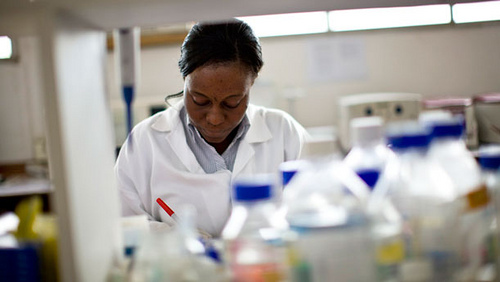 The government of Ekiti through the State Hospital Management Board (HMB) is making moves to re-position the healthcare system in the state and boosting healthcare delivery. To achieve these, the governor of the state, Ayodele Fayose has directed that medical facilities in the state should be properly equipped and adequately staffed. To this effect, the State Hospital Management Board (HMB) has commenced the process of recruiting no fewer than 100 medical personnel in compliance with the instruction.
The government of Ekiti through the State Hospital Management Board (HMB) is making moves to re-position the healthcare system in the state and boosting healthcare delivery. To achieve these, the governor of the state, Ayodele Fayose has directed that medical facilities in the state should be properly equipped and adequately staffed. To this effect, the State Hospital Management Board (HMB) has commenced the process of recruiting no fewer than 100 medical personnel in compliance with the instruction.
The Permanent Secretary (HMB), Dr. Kolawole Aina, who made this known, in Ado- Ekiti, disclosed that the agency had commenced interviewing shortlisted candidates from about 1,000 applicants for the various existing vacancies. Aina said that 20 medical doctors and 50 nurses would be recruited into the public service in the course of the exercise. He listed other cadres to be employed to include pharmacists, health assistants, health information officers, dental technicians, physiotherapist, medical laboratory scientists and image scientists.
According to him, the existing vacancies were consequential upon disengagement of workers from the public service, noting that many workers had retired without corresponding replacement over the years.
Source:Healthnews Nigeria
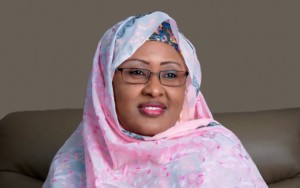 The Wife of the President, Mrs Aisha Buhari, has reiterated her commitment to improve maternal health and reduce the rate of infant mortality in Nigeria. She made the statement on Thursday in Abuja when Mr Perry Colderwood, the Canadian High Commissioner to Nigeria paid her a courtesy visit at the Presidential Villa. She noted that the wife of any leader have the responsibility to assist her husband in various ways since he is busy with state affairs.
The Wife of the President, Mrs Aisha Buhari, has reiterated her commitment to improve maternal health and reduce the rate of infant mortality in Nigeria. She made the statement on Thursday in Abuja when Mr Perry Colderwood, the Canadian High Commissioner to Nigeria paid her a courtesy visit at the Presidential Villa. She noted that the wife of any leader have the responsibility to assist her husband in various ways since he is busy with state affairs.
She said that this informed her decision to float her pet project, “Future Assured’’ to provide alternative life line for Nigerian women and children. “I decided to come up with a project called “Future Assured’’ to help in reducing maternal and infant mortality rate and support girl-child education. “The project is also to enlighten parents on how to restrain their children from being indoctrinated into social vices. “Monitoring daily activities and control of every child is a unique family affair. “We need to educate women on how to control their children in order to avoid a situation where they would fall victims of indoctrination to social vices inimical to the society,’’ she said.
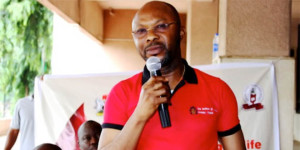 The Federal Government has allayed fears while debunking rumours of another Ebola Virus Disease (EVD) incidence in Nigeria, following the rumour of a suspected outbreak in Cross River State of a 21 year-old-male student of the University of Calabar.. Speaking to journalists yesterday in Abuja over the rumours of an outbreak, the permanent secretary, Federal Ministry of Health, Mr Linus Awute, stated, “The Federal Ministry of Health (FMOH) hereby confirms that there is no Ebola Virus Disease in Nigeria, and thus Nigeria remains Ebola- free.
The Federal Government has allayed fears while debunking rumours of another Ebola Virus Disease (EVD) incidence in Nigeria, following the rumour of a suspected outbreak in Cross River State of a 21 year-old-male student of the University of Calabar.. Speaking to journalists yesterday in Abuja over the rumours of an outbreak, the permanent secretary, Federal Ministry of Health, Mr Linus Awute, stated, “The Federal Ministry of Health (FMOH) hereby confirms that there is no Ebola Virus Disease in Nigeria, and thus Nigeria remains Ebola- free.
Meanwhile, the victim was said to have been admitted in the casualty ward of the University of Calabar Teaching Hospital by the mother and other family members with bleeding, diarrhea, vomiting, skin rashes and mouth lesions. His temperature on admission was 37 degrees centigrade and his vital signs were stable. The parents said that the patient had never travelled outside Calabar. On the basis of the signs and symptoms, a tentative diagnosis of viral hemorrhagic fever, to rule out Lassa fever was made.
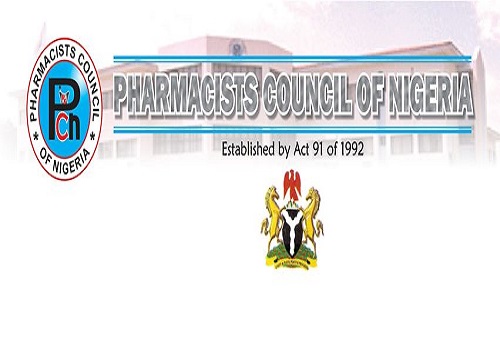 The Pharmaceutical Council of Nigeria (PCN) said at the weekend that it sealed 178 patent medicine stores in Rivers State. The council also said an undisclosed number of persons were arrested during their enforcement exercise in the state. The Director and Head of department in charge of inspection and monitoring at the council, Pharmacist Antonia Aruya, at a press briefing in Port Harcourt said they were in Rivers State to carry out an enforcement
The Pharmaceutical Council of Nigeria (PCN) said at the weekend that it sealed 178 patent medicine stores in Rivers State. The council also said an undisclosed number of persons were arrested during their enforcement exercise in the state. The Director and Head of department in charge of inspection and monitoring at the council, Pharmacist Antonia Aruya, at a press briefing in Port Harcourt said they were in Rivers State to carry out an enforcement

